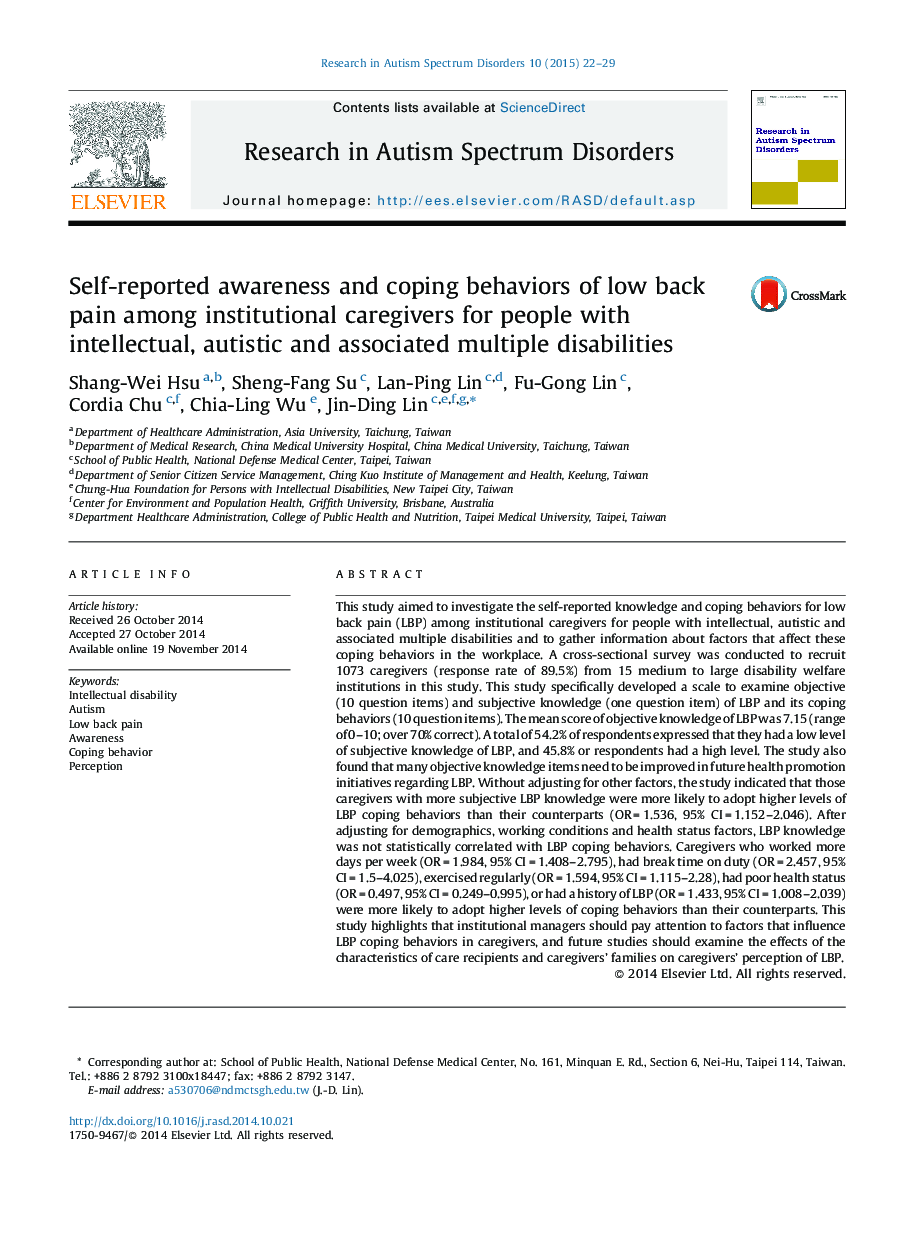| Article ID | Journal | Published Year | Pages | File Type |
|---|---|---|---|---|
| 370024 | Research in Autism Spectrum Disorders | 2015 | 8 Pages |
•To investigate self-reported knowledge and coping behaviors for LBP among caregivers.•54.2% caregivers expressed had a low level of LBP knowledge, and 45.8% had a high level.•However, LBP knowledge was not statistically correlated with LBP coping behaviors.•Future study should pay attention to factors that influence LBP coping behaviors in caregivers.
This study aimed to investigate the self-reported knowledge and coping behaviors for low back pain (LBP) among institutional caregivers for people with intellectual, autistic and associated multiple disabilities and to gather information about factors that affect these coping behaviors in the workplace. A cross-sectional survey was conducted to recruit 1073 caregivers (response rate of 89.5%) from 15 medium to large disability welfare institutions in this study. This study specifically developed a scale to examine objective (10 question items) and subjective knowledge (one question item) of LBP and its coping behaviors (10 question items). The mean score of objective knowledge of LBP was 7.15 (range of 0–10; over 70% correct). A total of 54.2% of respondents expressed that they had a low level of subjective knowledge of LBP, and 45.8% or respondents had a high level. The study also found that many objective knowledge items need to be improved in future health promotion initiatives regarding LBP. Without adjusting for other factors, the study indicated that those caregivers with more subjective LBP knowledge were more likely to adopt higher levels of LBP coping behaviors than their counterparts (OR = 1.536, 95% CI = 1.152–2.046). After adjusting for demographics, working conditions and health status factors, LBP knowledge was not statistically correlated with LBP coping behaviors. Caregivers who worked more days per week (OR = 1.984, 95% CI = 1.408–2.795), had break time on duty (OR = 2.457, 95% CI = 1.5–4.025), exercised regularly (OR = 1.594, 95% CI = 1.115–2.28), had poor health status (OR = 0.497, 95% CI = 0.249–0.995), or had a history of LBP (OR = 1.433, 95% CI = 1.008–2.039) were more likely to adopt higher levels of coping behaviors than their counterparts. This study highlights that institutional managers should pay attention to factors that influence LBP coping behaviors in caregivers, and future studies should examine the effects of the characteristics of care recipients and caregivers’ families on caregivers’ perception of LBP.
